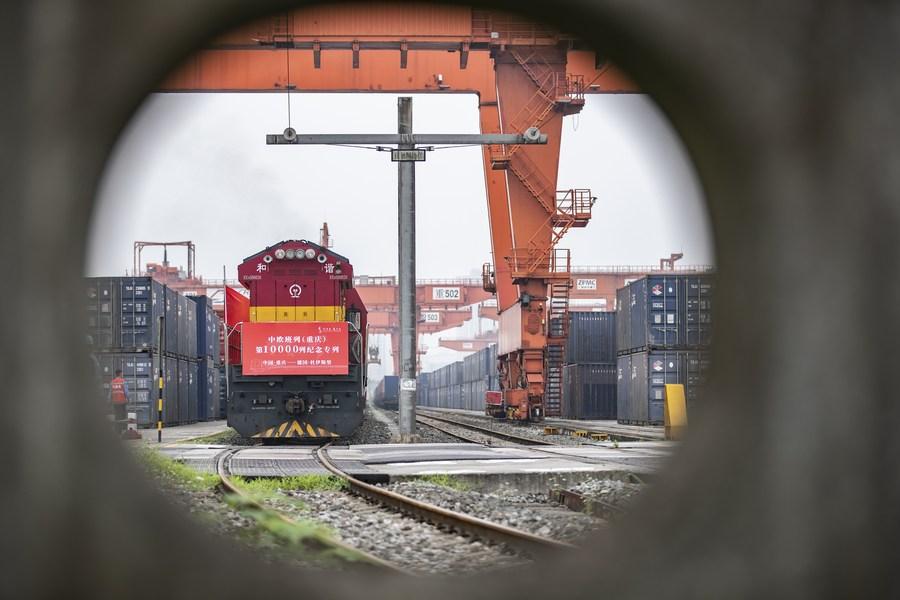DUISBURG, Germany, July 12 (Xinhua) -- A freight train, which departed from southwest China's Chongqing Municipality on June 23 with electronic products, mechanical parts and daily necessities on board, arrived in Duisburg, Germany on Monday.
The arrival marked the 10,000th trip made by China-Europe freight trains operated by the China-Europe Railway Express (Chongqing), the first of its kind in China that was launched in March 2011.
It is a milestone for the China-Europe freight train services as well as a fresh starting point of the new journey of common development in Eurasia, said Du Chunguo, Chinese Consul General in Dusseldorf, at a ceremony to mark the milestone.
The connection with China through the freight trains has opened a door for Duisburg, a German city boasting the largest inland harbour in Europe with booming business opportunities.
Situated in the Ruhr area in North Rhine-Westphalia, Germany, Duisburg used to be known for coal and steel production, which resulted in serious environmental pollution.
The city was determined to restructure of its economy, pivoting it away from iron and steel production to logistics and services.
However, the transformation bid hit a snag, and Duisburg was looking for a way out when the start of the China-Europe freight train services provided an opportunity.
With the steady growth of the China-Europe freight train services, businesses in Duisburg began to pick up.
So far, China-Europe freight trains connect Duisburg with an increasing number of Chinese cities such as Chongqing, Wuhan, Xi'an and Shenzhen.
In 2021, the weekly trips made by China-Europe freight trains hit a record high of 70, showed data from the Duisport, the ownership and management company of the Port of Duisburg.
The China-Europe freight train services have been growing rapidly and maintained a strong momentum, Duisport CEO Markus Bangen told Xinhua, adding that the cooperation between Germany and China is mutually beneficial and he looks forward to widened bilateral cooperation.
As an important destination of the China-Europe freight trains in Europe, Duisburg has become a gateway for people from Germany and China to better understand each other.
A growing number of Chinese companies, students and restaurants are turning up in Duisburg.
Markus Teuber, commissioner for China affairs of the Mayor's Office of Duisburg, disclosed that the number of Chinese companies in Duisburg has been on the rise since 2014 and Duisburg is home to over 100 Chinese companies now.
The benefit the China-Europe freight train services have brought to the German economy has gone far beyond Duisburg.
The China-Europe freight train services have noticeably advanced the economic development of the areas neighbouring Duisburg, Li Yuan, vice dean of the Institute of International Studies of Shandong University, said.
The freight train services can not only create job opportunities but also provide local companies with access to overseas markets, he added.




 A single purchase
A single purchase









